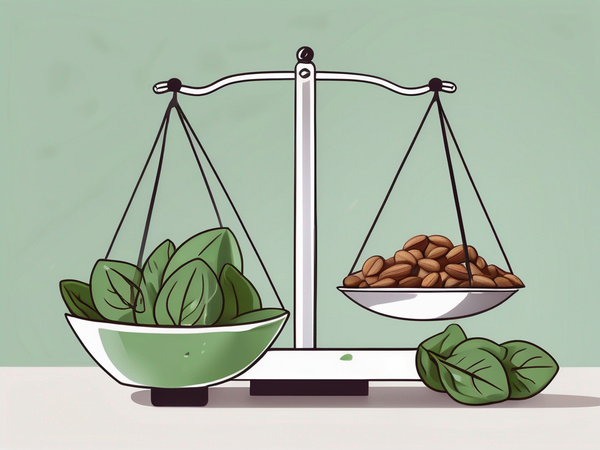Are you on a quest to shed those extra pounds and have heard about matcha supplements as a miracle solution for weight management? You're not alone if you're intrigued but skeptical about whether this vibrant green tea powder can help you achieve your weight-loss goals. The world of dietary supplements is filled with fact and fiction, and separating the two is essential.
In this blog, we'll delve deep into the realm of matcha supplements, exploring their potential benefits, the science behind them, and what you need to know before incorporating them into your weight management journey.
What is Matcha, and How Does it Differ from Green Tea?
Before we dive into the weight management aspect, let's understand what matcha is and how it sets itself apart from regular green tea.
Matcha is a type of powdered green tea that has been used in traditional Japanese tea ceremonies for centuries. What makes it unique is the way it's grown and processed. The tea plants are shaded for several weeks before harvest, increasing the chlorophyll content and giving matcha its vibrant green color. After harvest, the leaves are ground into a fine powder, making it a concentrated source of all the beneficial compounds found in green tea.
This contrasts with regular green tea, where the leaves are steeped in hot water and discarded, resulting in lower overall consumption of the tea's nutrients.
Understanding the Components of Matcha
To comprehend how matcha may impact weight management, it's crucial to look at its key components:
-
Caffeine:
Like green tea, matcha contains caffeine, but in varying amounts. Caffeine is known to boost metabolism and increase fat oxidation. It can provide a temporary energy boost and potentially aid in physical performance during workouts.
-
Epigallocatechin Gallate (EGCG):
Matcha stands out for its exceptional EGCG content, surpassing even the highest concentrations found in other green teas. Research indicates that a dried matcha tea leaf boasts a remarkable 137-fold increase in EGCG when compared to the dried leaves of other green tea varieties. Thanks to this substantial EGCG presence, matcha is celebrated as a premier antioxidant supplement. It's believed to have various health benefits, including potential effects on metabolism and fat oxidation.
-
L-Theanine:
L-Theanine is an amino acid found in matcha that can have a calming effect, counteracting some of the jittery side effects of caffeine. It's believed to enhance mental alertness and focus.
-
Fiber:
Matcha contains dietary fiber, which may contribute to a feeling of fullness and help control appetite.
-
Vitamins and Minerals:
Matcha is a good source of vitamins E and C and various minerals. These nutrients play multiple roles in overall health and well-being.
Matcha Green Tea for Weight Loss
The potential link between matcha and weight loss is the subject of scientific research and ongoing investigation. You can use matcha for weight loss or weight management because of the following reasons:
-
Metabolism Boost
Several studies have suggested that combining caffeine and catechins, such as EGCG, in matcha can temporarily increase metabolism, resulting in a higher calorie burn rate.
-
Fat Oxidation
Research indicates that the compounds in matcha, particularly caffeine and EGCG, may enhance the body's ability to break down and utilize stored fat for energy.
-
Appetite Control
Matcha's fiber content may contribute to a feeling of fullness, potentially aiding in appetite control and reducing overall calorie intake.
-
Improved Physical Performance
The caffeine in matcha can provide an energy boost, potentially enhancing physical performance during exercise, which is vital for weight management.
While these findings are promising, it's important to note that results can vary among individuals. Furthermore, the impact of matcha on weight management should not be seen as a stand-alone solution but rather as part of a holistic approach that includes a balanced diet and regular physical activity.
Incorporating Matcha into Your Weight Management Routine
If you're interested in using matcha tea for weight loss, here are some tips:
-
Choose Quality Matcha
Opt for high-quality, pure matcha powder without added sugars or artificial ingredients. Look for ceremonial or culinary-grade matcha, as these are suitable for consumption.
-
Start Slowly
If you're new to matcha, begin with a smaller serving and gradually increase it. Matcha can have a strong flavor, so find the right concentration for your taste.
-
Be Mindful of Added Calories
While matcha itself is low in calories, be cautious when adding sweeteners or high-calorie milk to your matcha beverages, as this can counteract its potential benefits for weight management.
-
Use Matcha supplements
If you want to skip the hassle of brewing matcha tea, you can try supplements that contain Japanese ceremonial matcha tea. Supplements are easy to take and carry on the go, making sure you never miss your daily matcha dose.
Wrapping Up
Incorporating Japanese ceremonial matcha into your healthy lifestyle is a remarkable choice. Whether you're on a journey to shed some extra pounds or simply aiming to nurture your well-being, embracing matcha promises a wealth of advantages. You can creatively utilize this versatile supplement to craft delightful boba teas or savor it simply with water, all while reaping its myriad health benefits.
References:
https://www.sciencedirect.com/science/article/abs/pii/S0021967303011336
https://www.ncbi.nlm.nih.gov/pmc/articles/PMC7796401/

























